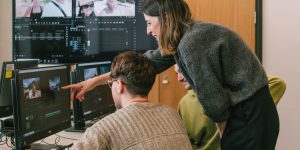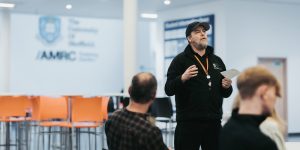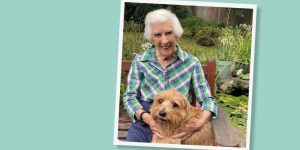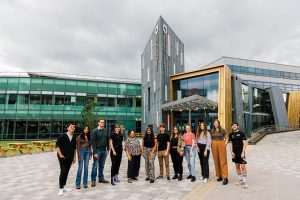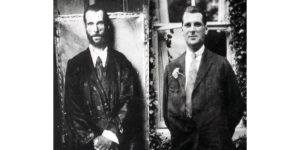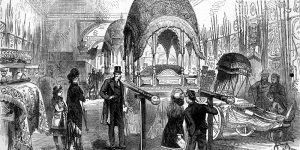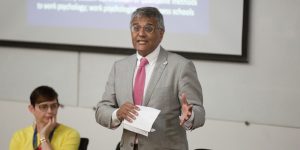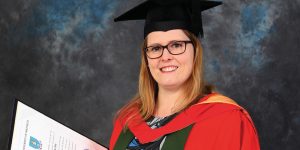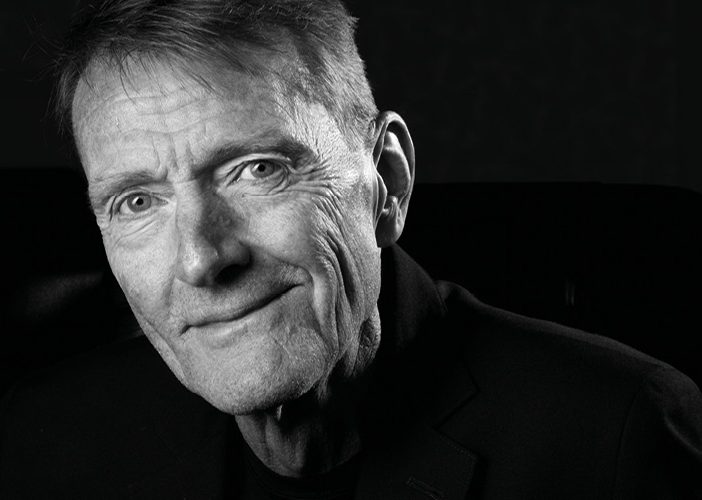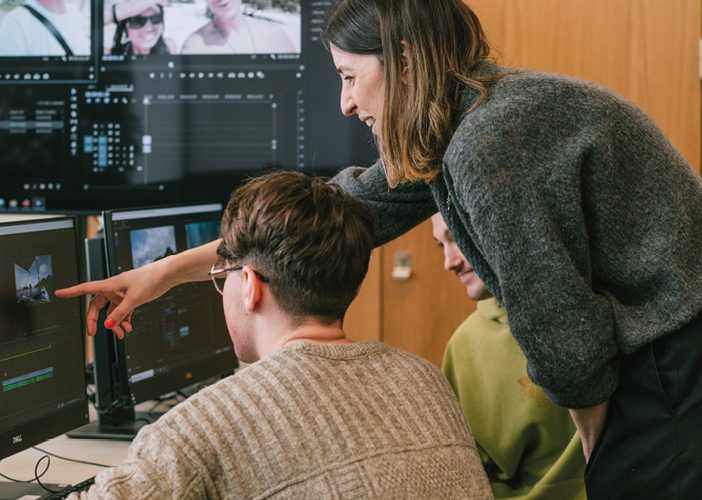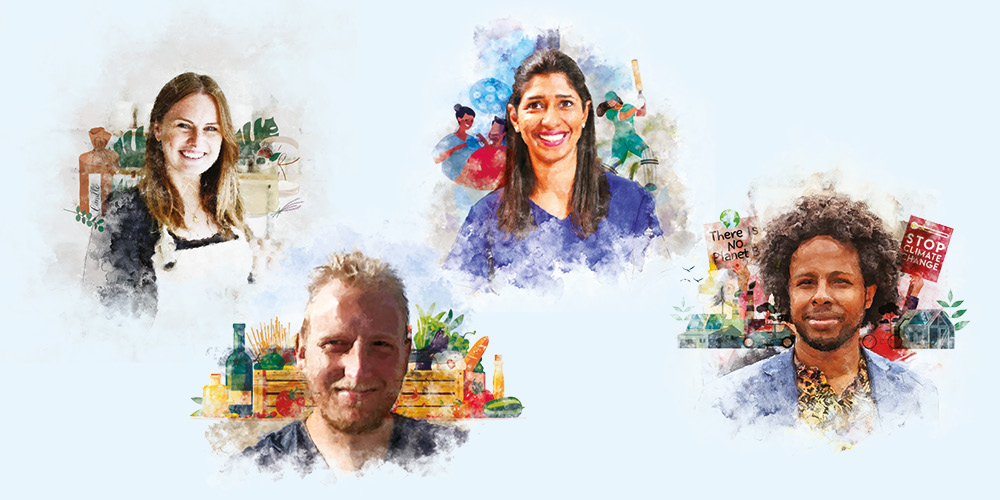
In profile: We catch up with some of our inspiring alumni
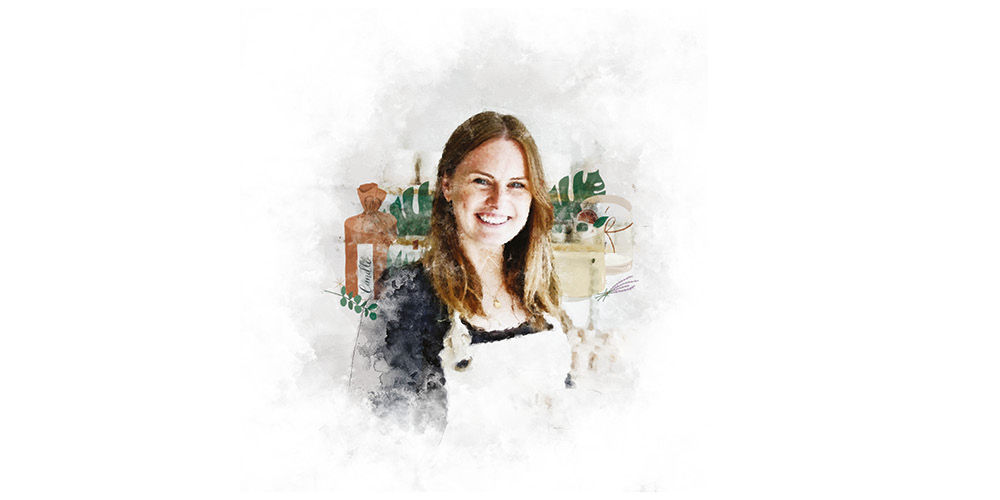
Ailis Topley, BA Business Management 2014
Founder at Pott Candles; Forbes 30U30; Young Entrepreneur of The Year (Great British Entrepreneur Awards).
After a last minute change of heart – and subject – from English Language to Business Studies, Ailis’ career has taken her from Sheffield to a graduate programme, strategic consultant, and finally to building a multi-million pound business from a lockdown hobby.
“Neither the course nor Sheffield were my first choice. But two months before A-Level results,
I realised I just loved the subject, and I fell in love with Sheffield too. To this day, it’s one of the best decisions I’ve ever made. I would go back and do those three years over and over.
The course was an amazing foundation, and I got to study exactly what excited me about the subject – the psychology and the ethics behind it. Why do people buy in a particular way? What drives us as consumers? After graduation I took what I’d learned and applied it in the real world. First on a graduate placement at Yum!, and then as a consultant.
When the pandemic came along I was in Australia, about as far away from my family as it was possible to be. Like so many people, I found comfort in a neglected hobby – candle making. I gave them to friends, who returned the empty pots back for a refill. I started thinking how strange it was that recycling wasn’t the norm. I decided to come home and took the leap to start my business.
It’s hands down the most fulfilling thing I’ve ever done. And the hardest, too. I didn’t know what I was getting into, but I truly believe that naivety is a secret super power and should be harnessed constantly.
I truly believe that naivety is a secret super power and should be harnessed constantly.
Receiving the award from Forbes was a dream come true. It boosted my confidence that refillable candles are the future of the candle world and we could lead the change.I think I’m still naive, and I still don’t know what the future holds, even now. We’re totally disrupting the category, so I remind myself daily that the reason this is hard is because no one’s done it before. We’re at the forefront of this movement of change within the industry – changing customer behaviour when it comes to waste, and doing it in a good and ethical way. We’re totally UK made and we work with real artisans to create the product. I feel proud that no one could replicate the business as it is, and I want to hold on to that authenticity, whatever comes next.”
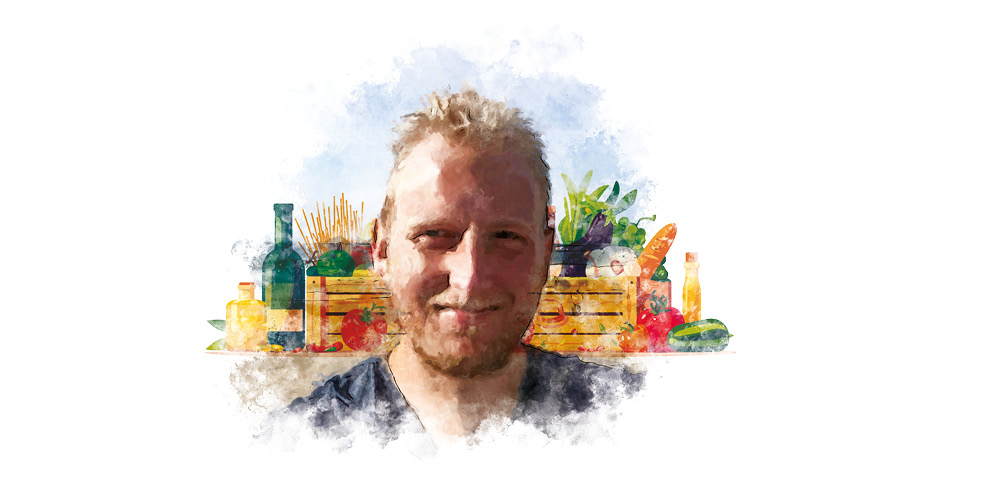
Kris Gibbon-Walsh, Chemistry MSc 2005; Honorary Doctor of Letters 2023
Chief Operating Officer at FareShare UK; Chair of UK Emergency Partnership Food group; Chair of Hardship and Hunger Steering Committee; Global charity Founder and trustee.
Kris is someone who will excel regardless of the path he chooses. After leaving a successful career in post-doc research, Kris moved back to London and began volunteering for FareShare. Over a decade later, Kris has worked his way up from intern to COO – delivering a 300% increase in foods redistributed to charities, among many other achievements. As we hear from Kris, it’s a rise powered by his problem-solving mind, and his passion for creating a better world.
“Sheffield was a massive life-changing experience for me. Things like Fuzz Club, Corp, listening to new music and playing in bands. I still absolutely love the city and visit regularly for work. At university, I learned the scientific method and how to solve problems. I’ve spent my career using and then transferring those skills. Today, I solve societal problems instead of chemical ones.
I made a career change because I felt like I’d become unbalanced. I was career-heavy and life-poor, whilst not feeling like I was making a difference. Being clever was the easy part. Turning that into something is hard. So I came back to London where I didn’t have a job… Everyone thought I was crazy.
An internship with FareShare came up and I took it… then they offered me a job. A lot of the jobs that they gave me I’ve done badly, but they keep giving me more stuff. I’ve been very fortunate to keep being promoted. I’m still here because I see the difference that it makes every day.
I’m ultra motivated to do more and to make bigger changes because I think these small-scale changes aren’t enough, we need fundamental global system change.
I get approached to work at other charities, but I don’t think right now I can make as big a difference anywhere as I can at FareShare. I love what Fareshare does for the environment and society. I mean, 2023 was the warmest year on record. We’re falling off the cliff, and we aren’t doing enough. A third of all food that’s grown is wasted. If it was a country, it’d be the third biggest carbon emitter in the world.
There are things we can do at an individual level, but I believe working at a systemic level is more likely to solve the actual problem. The relationship between food and consumers drives waste. We expect to buy oranges in winter at 12am. And if it’s not sweet or juicy then we go and buy somewhere else. That kind of availability means that by consequence, if the weather changes or if consumer patterns change, you end up with loads of waste all around the system. Whereas if we ate what was grown seasonally, we would cut waste out of the system at the farm level.
I’m ultra motivated to do more and to make bigger changes because I think these small-scale changes aren’t enough, we need fundamental global system change. It’s like changing careers: looking after your future self is one of the hardest things to think through, but one of the most important. It’s easy to leave it until tomorrow, but behaviour never changes until it’s too late. It’s about taking a deep breath changing those behaviours now and owning it.”
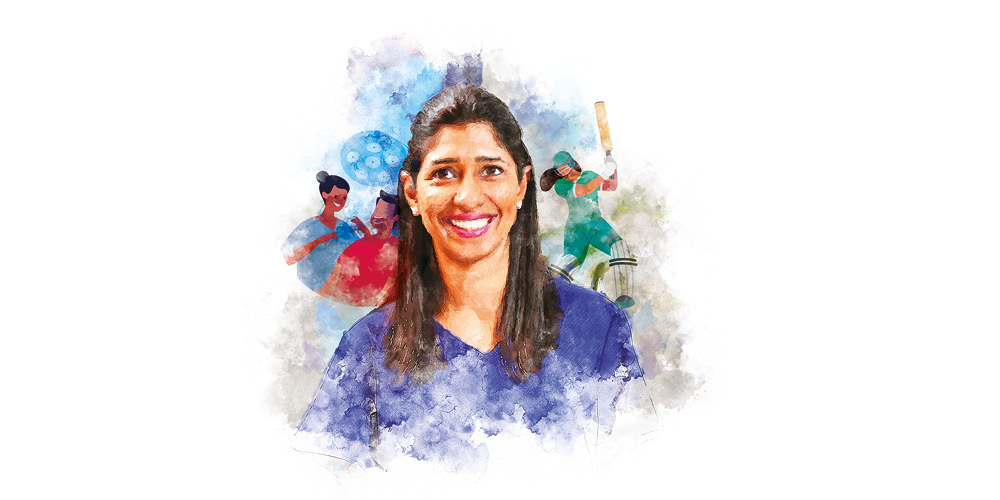
Urooj Mumtaz Khan, MMedSci Restorative Dentistry 2011
Dentist; Former Captain Pakistan Women’s Cricket team; Broadcaster and Commentator; Television host.
Exposed at an early age to twin passions of cricket and dentistry Urooj committed herself to both, making her international debut within months of beginning medical school. One of the sport’s youngest female captains, and later the first Pakistani woman to commentate in a men’s international one day match – to say Urooj is an important figure in the sport’s history is an understatement. Though it’s her love for the sport and for learning that drives her.
“Why cricket and dentistry? It happened quite naturally. My parents have run a successful private dental practice since 1980. Most days, after school my mother would bring us back to the office and I’d be leaning over either parents’ shoulder, watching them work. As for cricket, you can’t live in Pakistan without playing or at least watching. It’s the one sport that brings all of us together.
I’m very competitive and come from a sporty family. I was a table tennis champion, Taekwondo black belt, and my siblings and I all swam for nationals as well. But it was cricket that I truly loved.
There was an under-13 boys group at the same club where my dad played. There was no concept of a women’s team or a girl playing, but there was no law against it and eventually, when I was seven, I did get to play, though my dad had to fight for my place. It was the same in the under-17s and under-21s – I was the only girl all the way through.
I knew right away that I had to be at least as good as half the guys to deserve a place on the team. My performance needed to count. And I still believe that, regardless of gender, everyone should be judged on merit above all else. I think I keep working hard at whatever opportunity I get because I want to break down the barriers for the women that follow me.
The fact I loved fielding also took me a long way. I didn’t mind if I didn’t get to bat or bowl, because I was inspired by Jonty Rhodes, especially that time in the ‘92 World Cup where he sprinted and threw himself at the wicket to run out Inzamam ul Haq. So I just focused on getting better and better and eventually I captained the under-17 boys team.
I’m very competitive and come from a sporty family. I was a table tennis champion, Taekwondo black belt and swam for the nationals like my siblings before me. But it was cricket that I truly loved.
I played with the boys and the girls when I came to Sheffield too – Sheffield United boys team had a place for a leg spinner who was a decent fielder and could score a few with the bat in the middle. It was clinical placement during the week, and cricket at the weekends. I made some great friends and lovely memories – like playing against the great Joe Root. I would have loved for it to be longer than a year because of the uni, the teachers and Sheffield itself. It’s a beautiful place. If you want to be quiet and study, nobody will bother you. If you want to really have a good time, everybody will be there with you. If I could have that experience again, I would do it at the drop of a hat.”
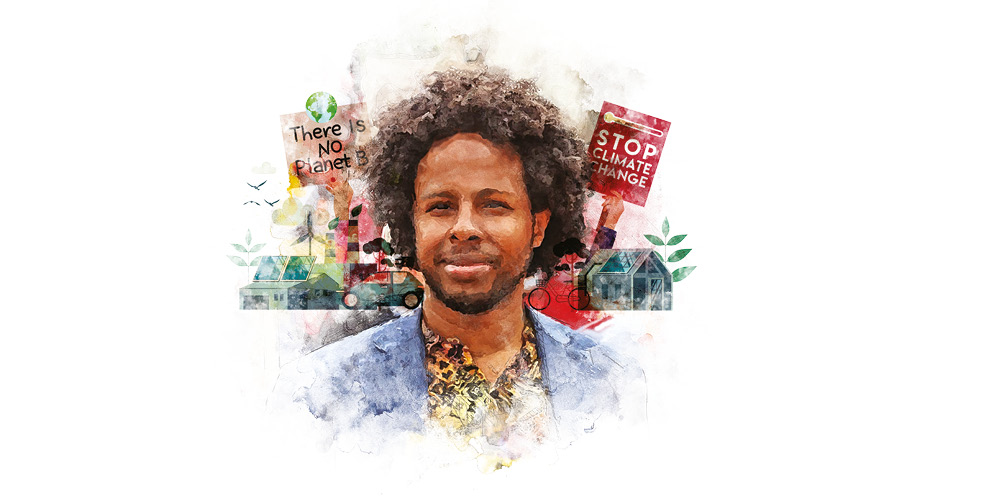
Abdi-Aziz Suleiman, BA Philosophy 2014, Master of Business Administration 2023
Political Affairs Manager, Friends of the Earth.
Abdi arrived in Sheffield from Somalia with his mum when he was three, and grew up in the Exeter Drive flats. From the way he speaks about his childhood and time at the University of Sheffield, his love for the place is as deep as his love of learning. No surprise then that Abdi became Union president and spent most of his degree protesting against fee increases. Or that he stood as a candidate for Sheffield Central, and now finds himself lead lobbyist for Friends of the Earth. He is a person with that rare combination of an inquiring mind and strong moral compass.
“I chose philosophy because it is a fundamental subject. Everything has a philosophy, and I just loved the fact that I could have three years where I intensely interrogated the world. It’s such a privilege to be able to study for its own sake – to just learn for the joy of learning. Studying is a luxury, but I think it’s a luxury absolutely everyone deserves.
That’s why I campaigned so hard against rising fees. I feel sorry for my Philosophy lecturers because I spent so much of my time protesting! It’s also why I became president of the Union – so I could meet that first wave of students who were paying £9k, rather than £3k. I wanted to make sure those students never saw studying as a simple financial transaction. Because I passionately believe that this experience has a more profound meaning. They’re here to interrogate their souls, to really decide how they want to live, to shape who they are and to realise the world they want to see.
For me, the best of politics – just like the best of business or activism – is about trying to find systematic solutions to problems.
This is how I came to study for an MBA: I’ve always been a campaigner, always challenging power, and I wanted to understand better how one of society’s poles of power works. It was an incredible experience and there are things that tutors told me then that I still think about today. It was part of the journey to standing as an MP for Sheffield Central.
To represent my neighbours and friends would have been an incredible honour. That didn’t work out, but that hasn’t stopped me trying to change the world for the better. For me, the best of politics – just like the best of business or activism – is about trying to find systematic solutions to problems. And climate change is the biggest problem there is. So, as an environmental lobbyist, my job is to try to get whichever government is in power to pass laws that will protect both this country and the world. Maybe saving the world sounds a bit self-important, but that is literally why we’re here! And yes, the fossil fuel lobby is better funded, so it’s definitely a David and Goliath situation. But then, tell me, how did that story turn out for Goliath?”



